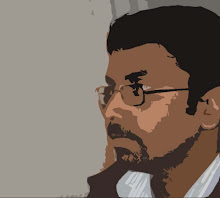There was yet another instance of blood-shed in Whenever we consider the question of who has the legitimate right to rule a particular piece of land, we should, and unfortunately in most cases fail to, consider an important factor. That is the sentiments of people who live there. Most often, in the madness to win the race, the will of people and their sense of belonging are completely forgotten. And this happens to be the root cause for most of the problems the world faces today. As it claims, One thing that stands out in this entire episode is that, after all this, Tibetans made sure that they did not lose their cultural identity over the years. It is precisely because of this reason that they are able to sustain their struggle until today, even when most of them, including their religious and political head live in exile in different countries for nearly half a century. The religious and political head of the Tibetans – the fourteenth Dalai Lama - has time and again proposed to have talks with the Chinese. He has publicly stated that what Tibetans ask for is more autonomy to protect their culture and not complete freedom, though all Tibetans - especially the youth - would not completely agree with this compromise. But, |
Why would China ban international media or adopt internet censorship (they had forbidden postings on events happening in
When we turn back the pages of history, it will be clear – as is almost always the case - that every country had its own selfish motives in mind when they dealt with the Tibetan issue. Everybody -let it be
The writer does not wish to touch upon the United Nation’s role in this entire episode, for it would be naïve to still expect anything meaningful from the international body other than “voicing” concern, especially when it comes to a powerful country like
But, whenever people are deprived of their fundamental rights, whenever their deepest sentiments are hurt, whenever they are treated like worthless slaves, lifeless objects or even worse, whenever they are pushed beyond a limit, it will not be long before they find a way out. All the pain in the hearts of the helpless will one day erupt, like a volcano and when that happens, No force in this world -however mighty and strong it might seem to be - will be able to stand that. I only wish that the Chinese learn this lesson at least now. Otherwise, there will be a day –even if not in the near future- when they will be forced to learn that in a hard way.


4 comments:
Realistic and rational approach of the burning problem not only in Tibet but also over length and breadth of the world of people longing 4 their soil. hats off author.
@jey: Thank you :)
Hi ,Nice post.
@thesparklingthoughts: Thanks
Post a Comment